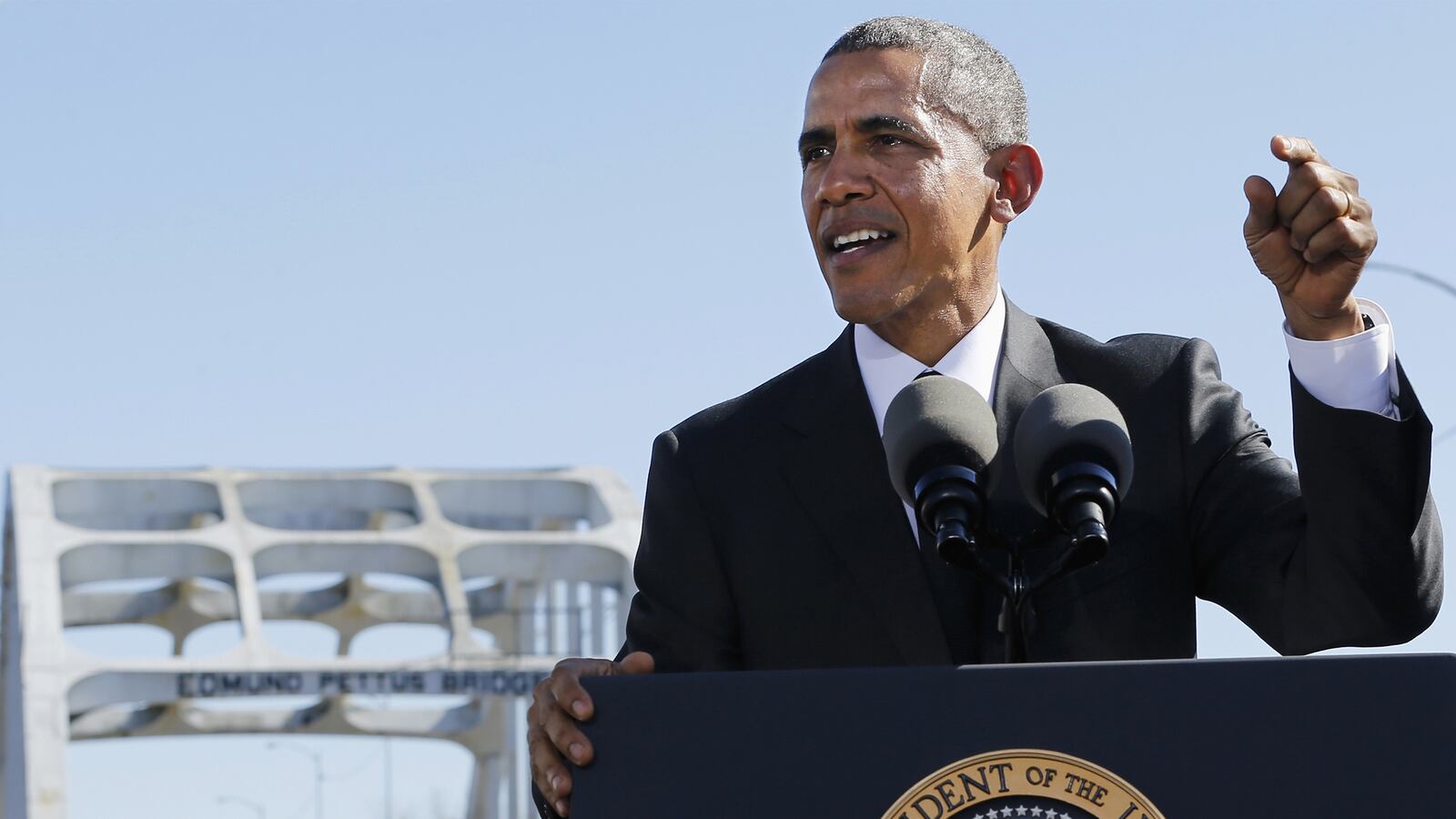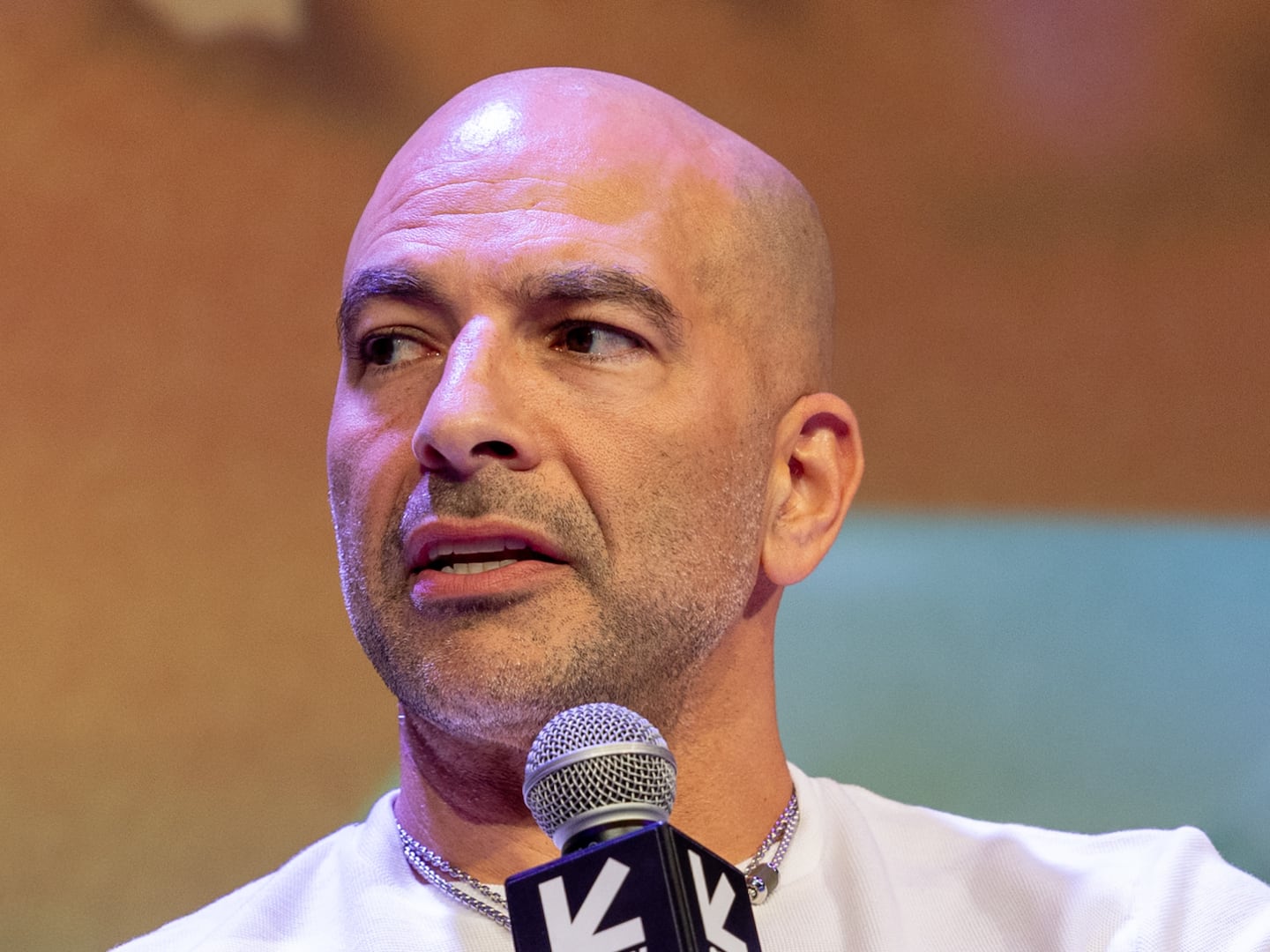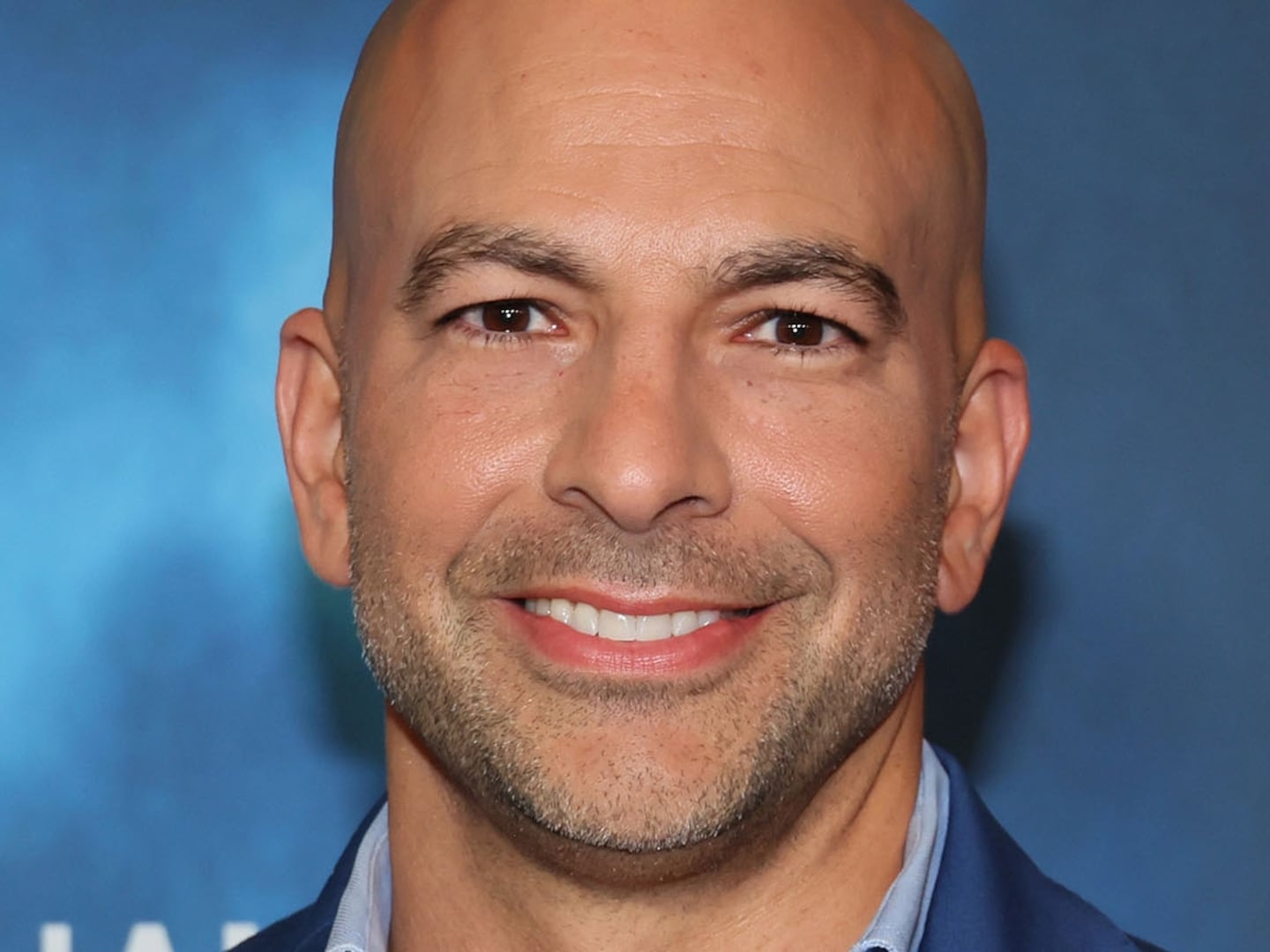Wisconsin Republican Jim Sensenbrenner is nobody’s idea of a pussycat. A combative conservative and former chair of the House Judiciary committee, he vowed more than a year ago to restore the Voting Rights Act after the Supreme Court in 2013 overturned a key section monitoring states that had been past offenders. He said the historic civil-rights legislation “is vital to our commitment to never again permit racial prejudices in our electoral process.” He promised action before the 2014 election.
There’s no question that Sensenbrenner’s commitment is real, but the legislative fix that he fashioned is stalled in Congress and going nowhere. This is despite the fact that one of his principle co-sponsors is Democratic Rep. John Lewis, a civil-rights icon who marched in Selma last weekend to commemorate the 50th anniversary of the VRA.
“How can that be?” President Obama pleaded in the speech he delivered at the foot of the Edmund Pettus Bridge where Lewis was beaten and bloodied a half century ago. The VRA is “one of the crowning achievements of our democracy,” Obama said, noting that Presidents Reagan and George W. Bush signed its reauthorization when they were in office. A hundred members of Congress had come to Selma to honor those like Lewis who put their life on the line for the right to vote. He urged them to go back to Washington, gather four hundred more, “and together, pledge to make it their mission to restore the law this year.”
What Obama politely didn’t say is that the congressional showing was almost all Democrats. One of the few Republicans on hand, South Carolina’s Tim Scott, criticized Obama for mixing politics with symbolism by mentioning the stalled legislation. “Politics is about what’s important to people, and what bothers people—so when a politician like Tim Scott who comes from a state that’s worse than Ferguson says politics shouldn’t be introduced, that means he doesn’t want to talk about it,” says David Bositis, formerly with the Joint Center for Political and Economic Studies, whose research focuses on the American black electorate.
Asked whether the symbolism of Selma fifty years later might move Congress to act, Bositis said flatly, “It’s not going to happen, nothing’s going to happen…. On balance this is more of a problem for the Republican Party than the Democrats because the people who are being disenfranchised view the Republican Party as hostile to them. It’s hurting the Republican Party.”
The Supreme Court 5-4 ruling in Shelby County v. Holder in June of 2013 opened the door to a spate of voter ID laws. “Voter suppression, that’s the intent, but so few people vote in the United States,” says Bositis, “so all they’re doing is reinforcing the idea that Republicans are hostile to minority groups.” The GOP did very well in 2010 and 2014, but it had nothing to do with voter suppression, he says. Young people and minority voters typically have low turnout in non-presidential years.
For example, Ferguson is two-thirds black, yet a majority of voters in their local elections are white. “Otherwise Ferguson would have a black government and a black police force, and if there was any justice in the world, they’d be suppressing white people,” Bositis says with a wry laugh.
No election outcomes will be changed with or without the reauthorization of the Voting Rights Act, he declares. Still, it’s important. “The fact that one of the two major political parties is hostile to the rights of minority citizens is a very big deal—and a lot of that hostility is in the center of gravity of the party, which is Southern whites.” They’re not wielding clubs and hoses anymore, he says, and they may not say anything overtly racist. They cloak their objections in states’ rights. But Republicans not only have no incentive to update the VRA, they have a disincentive, he explains.
Their conservative supporters wouldn’t like it if a restored VRA allowed the Justice Department to rule against all the new voter ID laws. Democrats would have to go a long way toward sanctioning voter ID requirements if they want GOP votes for a reauthorized VRA, and even then Republican cooperation is unlikely. Sensenbrenner has been in Congress since 1979, and for decades was one of its most powerful members. “He doesn’t have the influence he once had,” says Bositis. “He’s a John Boehner Republican, and the people who are calling the shots in the House are the people on the right.”
When Sensenbrenner unveiled his bipartisan bill last year, a right-wing blog noted that the veteran lawmaker had won “praise from far-left, Soros-connected race-hustling groups,” and that he is working with “a rogue’s gallery of leftists” to restore parts of the Voting Rights Act struck down by the Court. Sensenbrenner has witnessed firsthand the arc of history. He helped lead the negotiations in 1982 when reauthorization of the VRA cleared the House 389-24 and President Reagan signed it into law. A young lawyer named John Roberts in the White House counsel’s office advised Reagan against signing the legislation, but other advisors saw opportunity.
The renewed law authorized majority minority districts, making it possible for more African-Americans to win elective office, and also allowing Republicans to make gains by moving black Democrats out of competitive districts, making those seats safer for the GOP. Sensenbrenner later led the effort for President Bush to sign a reauthorization of the VRA in 2006. The vote was 98 to zero in the Senate and 390-33 in the House.
In a rapidly changing America, the signals the GOP sends are as important as any legislation. Sensenbrenner told the Senate Judiciary Committee in 2013 that he didn’t expect his career to include a third reauthorization of the VRA, “but I believe it is a necessary challenge. Voter discrimination still exists, and our progress toward equality should not be mistaken for a final victory.”
Something would have to change radically on Capitol Hill for the third time to be the charm. No vote is expected in the House, and in the Senate, GOP leader Mitch McConnell won’t bring up anything that could put his members on the spot. Politicians can savor the symbolism and forget the substance, at least for now.






